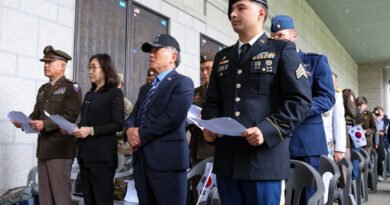Exploitation of International Students Through Sexual Abuse in Australia
The NSW Anti-Slavery Commissioner is cautioning Australian universities about the prevalence of forced labor and sexual exploitation targeting international students.
Universities in New South Wales (NSW) have been advised about incidents of sexual exploitation among international students amidst a resurgence of the international education sector.
James Cockayne, the NSW Anti-Slavery Commissioner, recently reached out to 10 universities in the state to alert them about cases of exploitation against international students. He expressed concerns that authorities were not effectively addressing the issue, as reported by The Australian newspaper.
“We’ve witnessed international students being coerced into marriage once in the country. Through fraudulent means, coercion, or force, individuals have been compelled to undertake work that they did not agree to,” he added.
The commissioner highlighted various reasons why international students are vulnerable to exploitation by criminals, including language barriers, poverty, lack of family support, and unfamiliarity with Australian laws.
He also pointed out that the housing crisis and rising living costs have pushed many international students into risky situations, exacerbating the problem.
“We believe there is significant under-reporting of forced labor, deceitful recruitment, and debt bondage among international students due to their fear of losing visa status,” he remarked.
“They are afraid of potential retaliation against themselves or their families overseas in some cases.”
Mr. Cockayne mentioned that some dubious education providers and agencies may be complicit in recruiting international students for illicit purposes.
However, the commissioner acknowledged that many universities in NSW have implemented measures to prevent the exploitation of international students.
In addition to international students, migrants and domestic workers are also susceptible to exploitative employment practices.
Certain sectors such as agriculture, construction, hospitality, and manufacturing are at higher risk of forced labor and exploitation.
Strong Recovery of International Education Sector
Mr. Cockayne’s warning coincides with the robust recovery of Australia’s international education sector following the Labor government’s reopening of borders in 2022.
Despite the government’s efforts to curtail the influx of migrants resulting from its post-COVID-19 policies, a significant number of international students have flocked to Australia.
As part of this strategy, the government planned to target student visa holders who prolong their stay in Australia without a clear pathway to permanent residency.
To address the issue of “permanent temporariness,” the government sought to shorten graduate visas and eliminate provisions that allowed graduates to extend their stay in Australia when permanent residency was unlikely.
The migration reforms also aimed to enhance the quality and integrity of Australia’s international education sector by raising the minimum English language requirements for student and graduate visas.





